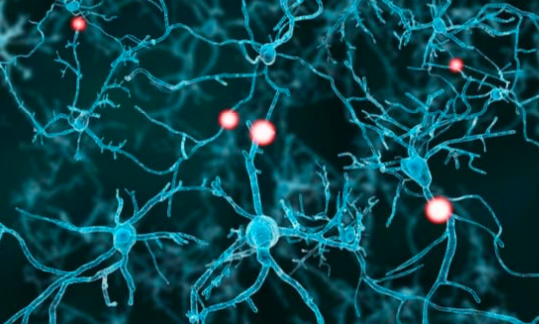You might be wondering, what are neurotransmitters and how can ginseng help? Funnily enough, for you to concentrate enough to have this thought, neurotransmitters had to play their part!
Neurotransmitters play a vital role in our body’s functioning as they are the chemical messengers that carry signals from one nerve cell to another nerve, muscle or gland cell. They influence the cells in our body in 1 of 3 ways;
1. Excitatory – by promoting an electrical signal in the receiving neuron,
2. Inhibitory – by preventing an electrical signal
3. Modulatory – by regulating populations of neurons, while also operating over a slower time course than excitatory and inhibitory transmitters.
Basically…
These neurotransmitters in our body help to control our feelings, thoughts and movements both internally and externally (University of Queensland, 2022).
Are neurotransmitters good or bad?
With more than 40 neurotransmitters in our body’s central nervous system, they all have a different role to play. Every single neurotransmitter has a specific purpose and function, meaning none are necessarily “bad” and all would be considered “good”. However, what constitutes a “bad” neurotransmitter balance is when there is not enough or too much of a specific neurotransmitter produced.
Let’s introduce these chemicals
A good place to begin are the neurotransmitters that we want lots of, as they promote so many great effects:
- Dopamine – movement, memory and pleasurable reward and motivation
- Serotonin – controls your mood and is responsible for happiness
- GABA – an inhibitory neurotransmitter because it blocks, or inhibits, certain brain signals and decreases activity in your nervous system. This produces a calming effect and helps to ease feelings of anxiety, fear and depression
- Acetylcholine – plays an important role in many of your body’s functions, including muscle movement, memory and cognition, REM sleep, and attention and learning.
- Norepinephrine – Found in your brain and spinal cord, norepinephrine: Increases alertness, arousal and attention. Constricts blood vessels, which helps maintain blood pressure in times of stress.
Some of the neurotransmitters we want in smaller doses include:
- Histamine – regulates pathophysiological and physiological processes, such as secretion of gastric acid, inflammation, and the regulation of vasodilatation, acute inflammatory and immediate hypersensitivity responses (AKA allergic reactions)
- Cortisol – the stress response neurotransmitter; increases sugars (glucose) in the bloodstream, enhances your brain’s use of glucose and increases the availability of substances that repair tissues. High levels can cause weight gain, headaches, irritability and adrenal fatigue to name a few symptoms.
- Glutamate – helps to shape our learning and memory, however too much results in anxiety, depression, restlessness, inability to concentrate, headaches, insomnia, fatigue, and increased sensitivity to pain (sheffler et al. 2022).
Where does ginseng fit into this?
Ginseng is a root that has been used for years in traditional Chinese medicine and has extensive research to show its ability to enhance neurotransmitter production. Ginseng contains the active ingredient ginsenosides, this component has shown to increase the availability and activity of many neurotransmitters such as dopamine and serotonin (Hou et al., 2020).
What a great thought!
Quite literally, neurotransmitters are a great thought to have, and for some of them, the more the merrier! There is so much more to learn about neurotransmitters and how they affect our lives, why not continue learning about your brain? Better yet, give ginseng a try and see how your overall mood and functioning improves!
References
Hou, W. Wang, Y. Zheng, P. Cui, R. (2020). Effects of ginseng on neurological disorders. Front. Cell. Neurosci., 20 March 2020. Sec. Cellular Neurophysiology
Sheffler ZM, Reddy V, Pillarisetty LS. Physiology, Neurotransmitters. [Updated 2022 May 8]. In: StatPearls [Internet]. Treasure Island (FL): StatPearls Publishing; 2022 Jan-. Available from: https://www.ncbi.nlm.nih.gov/books/NBK539894/
University of Queensland (2022). What are neurotransmitters, Queensland Brain Institute. Accessed on 03/01/23, <https://qbi.uq.edu.au/brain/brain-functions/what-are-neurotransmitters>




